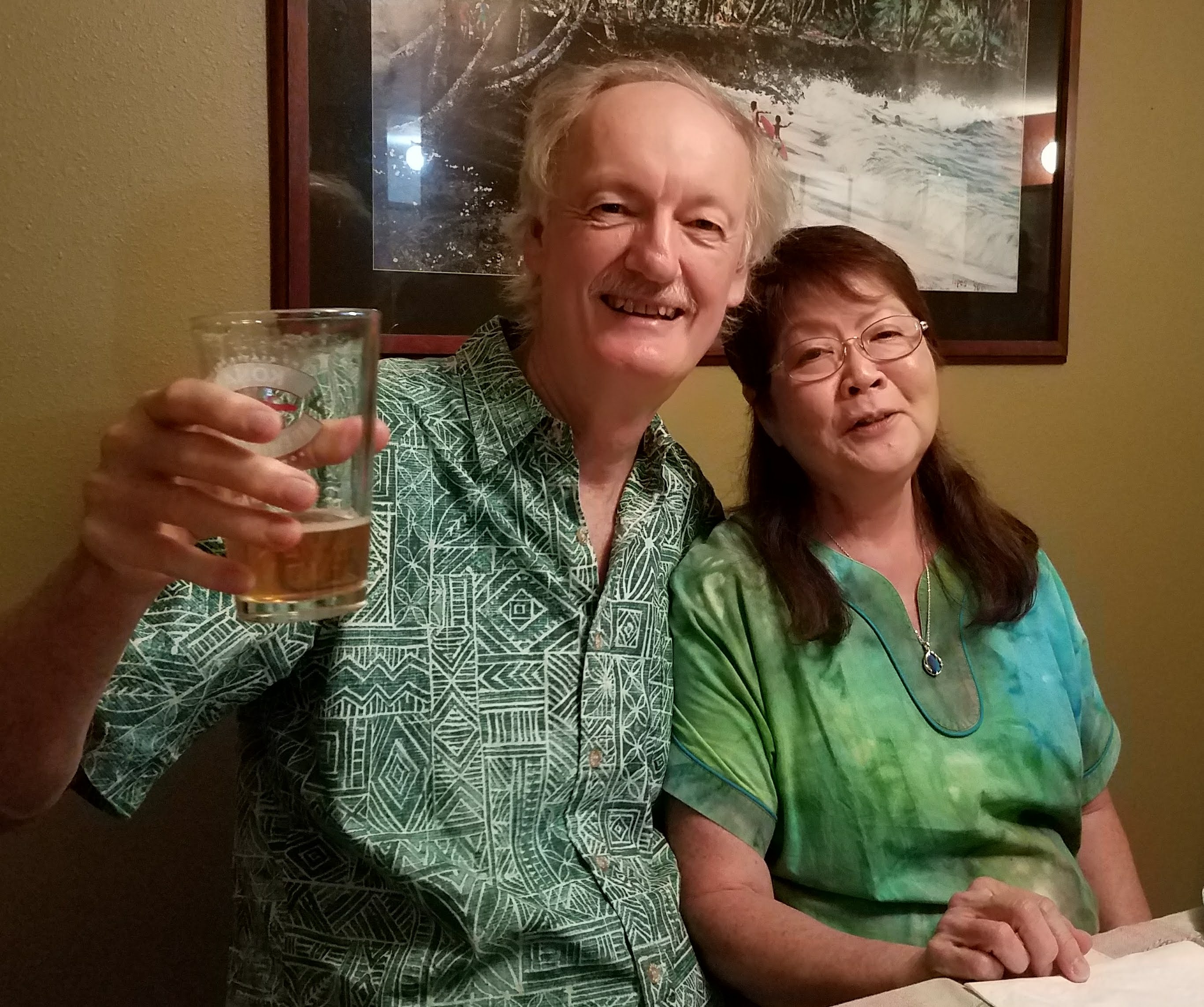 Albert Rich, TIME 2004 Conference, Montréal, Québec,
Canada, July 15-18, 2004; photo by Karsten Schmidt.
Albert Rich, TIME 2004 Conference, Montréal, Québec,
Canada, July 15-18, 2004; photo by Karsten Schmidt. Don't Drink and DERIVE; 2009.
Don't Drink and DERIVE; 2009. Albert and Joan Rich at a New York party; 2018.
Albert and Joan Rich at a New York party; 2018.
 Albert Rich, TIME 2004 Conference, Montréal, Québec,
Canada, July 15-18, 2004; photo by Karsten Schmidt.
Albert Rich, TIME 2004 Conference, Montréal, Québec,
Canada, July 15-18, 2004; photo by Karsten Schmidt.
 Don't Drink and DERIVE; 2009.
Don't Drink and DERIVE; 2009.
 Albert and Joan Rich at a New York party; 2018.
Albert and Joan Rich at a New York party; 2018.
--- David Jeffrey
Albert D. Rich III was born in Altadena, California on April 26, 1949 to Albert D. Rich II and Alberta W. Rich. Being almost ten years younger than his three siblings, he was probably an unexpected surprise to his parents. At age 7, the family moved to Nacogdoches, Texas where Albert was raised. His father was a chemical engineer in the vegetable oil bleaching clay industry. Because of his mother's love of travel, she started a successful travel agency. Albert was active in the Boy Scouts, but hated competitive sports.
Albert graduated from Nacogdoches High School in 1967, and won a Navy ROTC scholarship to the University of Texas. There he learned various programming languages, but immediately latched onto LISP as the language most in tune with his way of thinking.
After studying Bertrand Russell's Principia Mathematica, Albert became interested in automating the process of proving theorems and generating interesting new ones. He collaborated with Laurant Siklossy, a professor of computer science, on a paper about a unification algorithm invented by Albert for proving theorems in the propositional calculus. In 1971, he received a BA in mathematics from UT.
Upon graduation, Albert was commissioned as an officer in the US Navy. After a year of Navy nuclear power school, he served the remainder of his military commitment on the U.S.S. James Monroe, a ballistic-missile submarine home-ported in Honolulu, Hawaii. In June of 1976, he was honorably discharged in Newport-News, Virginia, but immediately went racing back to Hawaii.
Having some ideas for theorem proving that he wanted to implement, Albert bought a kit for an IMSAI 8080 computer and soldered it together. This S-100 computer had 4K memory boards costing about $500 each (several 1000 times more per byte than now). Having only enough money to populate one board with just 2K bytes of memory, Albert gained a real appreciation for a byte: a concept seeming unknown to the current generation of programmers.
The next step was to implement a LISP interpreter for the IMSAI. By hand-assembling machine-code and entering it from the front panel switches, ``first light'' for the interpreter was achieved by the end of 1976 (about the same time Bill Gates and Paul Allen were writing their Basic interpreter for the Altair computer).
In 1977, David Stoutemyer, a professor at the University of Hawaii, heard that Albert had a LISP system running on an Intel 8080 based computer. Having done pioneering work in the field of computer algebra, David was interested in bringing these capabilities out of the M.I.T. and Stanford closets and making them available to the masses. Since (as Albert is still convinced) LISP is the best language for implementing computer algebra systems, they began work on the first and only CAS that would run on CP/M based machines. In 1979, Albert and David formed Soft Warehouse, Inc. and began selling muMATH, the predecessor to DERIVE. And the rest is history!
Go to:
Conferences on Applications of Computer
Algebra main page